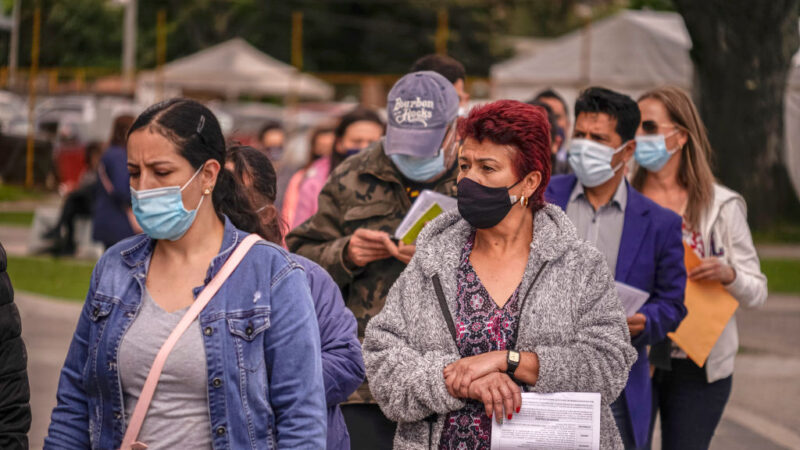[New Tang Dynasty News, September 02, 2021, Beijing time]The Chinese Communist Party virus (COVID-19) continues to mutate. The Mu mutant, which was first discovered in Colombia in January, has now been found in 39 countries. Studies have shown that Mu variant strains are variants with a risk of resistance to vaccines. In addition, the new mutant strain C.1.2 discovered in South Africa in May is more resistant to vaccines due to its high transmission power.
The Central News Agency reported that the World Health Organization (WHO) announced in its weekly routine epidemic announcement on August 31: “After the Mu mutant first appeared in Colombia in January 2021, it has received sporadic notifications. Large-scale epidemics have occurred in the Americas and European countries.”
The report cited information uploaded to the GISAID Initiative and pointed out that as of August 29, more than 4,500 gene sequences have been recorded in 39 countries, of which 3,794 were B.1.621 variants. , 856 cases were B.1.621.1 mutant strains. This global scientific initiative collects viral genetic sequencing case data and provides a database platform that allows public access.
According to the report, although the global prevalence rate of Mu “has now fallen below 0.1%”, the prevalence rates in Colombia and Ecuador (Ecuador) “continue to grow,” reaching 39% and 13%, respectively.
The WHO also pointed out that Mu “has a series of mutations that exhibit the potential for immune escape”, but also added that more research is needed to understand Mu’s phenotype and clinical characteristics.
The report said, “Mu is prevalent in South America, especially if it is co-transmitted with the Delta variant, and will be monitored by the World Health Organization.”
The WHO lists Mu as one of the five “mutants to watch out for”, and the other four are Eta, Iota, Kappa and Lambda. The four variants of high concern (Variants of Concern, VOC) that are considered to be likely to worsen the epidemic include the Alpha variant that was first discovered in the United Kingdom and that has appeared in 193 countries, the Beta variant that has appeared in 141 countries, and the Gamma mutant strains that appeared in 91 countries and Delta mutant strains that have appeared in 170 countries.
In addition, the new mutant strain C.1.2 that was first discovered in South Africa in May of this year also worries scientists, because compared to other mutant strains, C.1.2 has a higher spreading power and is more resistant to vaccines.
A research preprint (Preprint) published last week stated that after the C.1.2 variant was found in South Africa, Botswana, China, the Democratic Republic of Congo, the United Kingdom, Mauritius, New Zealand, Portugal and Switzerland also Related cases have been reported one after another.
This study led by South African scientists pointed out that the C.1.2 mutant strain has an abnormally high mutation rate and is also more susceptible to mutation than other “high concern mutant strains.”
Studies have shown that compared with other mutant strains, C.1.2 can cause more serious COVID-19 symptoms.
(Editor in charge: Lu Yongxin)
The URL of this article: http://cn.ntdtv.com/gb/2021/09/02/a103205751.html
